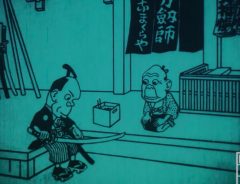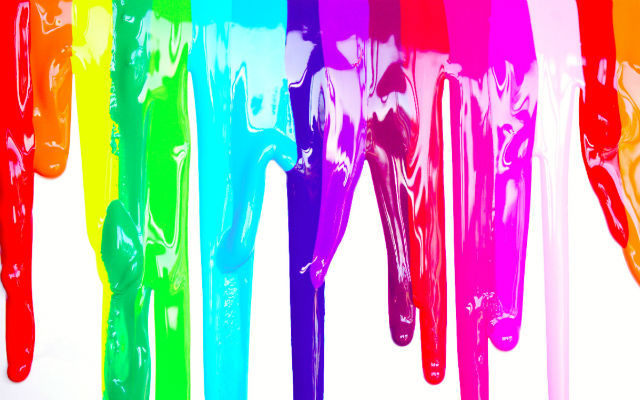- Tags:
- coronavirus / Japan / LGBT / Social Issues
Related Article
-

Japan Celebrates 100th Anniversary Of Anime By Launching A Free Archive Of Works Throughout The Century
-

Japanese School Forced Girls to Declare Menstrual Schedule So They Wouldn’t Skip Swimming Class
-

Japan’s first vegan fruit sandwich shop serves up delicious sandwiches using “King of Autumn” Pears
-

Watch an Escalator in Japan Transform into a Wheelchair Lift
-

Meiji Era-Style Starbucks To Open Up Outside Hot Springs That Inspired Spirited Away
-

Japanese Artist Creates Badass Digital Artwork With Fried Chicken And Udon



We recently covered YouTuber Moa and More’s experience coming out to his family. The vlogger sat down with a video camera and his mother, father, and sister individually to tell them what he had been hiding.
Understandably, his videos are pretty emotional. Like the rest of the world, Japan has a difficult history concerning LGBT rights and sexual minorities. Fortunately, Moa and More’s family was very supportive—they suspected their son's orientation all along. Unfortunately, other members of the Japanese LGBT community have not been so lucky.
In recent history, Japanese society has taken great strides to incorporate historically neglected sexual minorities into the mainstream. Members of the LGBT community are finding more doors open to them and a greater possibility for self-actualization. Nevertheless, hurdles remain as allies and the larger community fight for acceptance.
Certificates for Same-sex Partnerships
Just recently, Okayama became the latest city to announce certificates for same-sex partners. The ordinance will come into effect July 1st, making Okayama the 50th jurisdiction to implement such a program for LGBT residents.
While they fall short of fully recognizing same-sex unions, the certificates confer certain rights and benefits to couples. Although limited in scope, these certificates provide documentation useful for housing and hospital visitations. Still, they are not legally valid, and the national government does not recognize same-sex marriages. To date, Japan remains the only G7 nation not to provide legal recognition of LGBT unions.
As the number of municipalities issuing same-sex certificates continues to increase, local governments are working together to expedite procedures surrounding LGBT couples. For example, procedures are being developed that will allow couples to move easily between like-minded municipalities.
Acknowledgment by Companies and Brands
LGBT residents in Japan are undoubtedly a minority. However, they retain significant purchasing power. According to LGBT capital, LGBT citizens spent $253 billion in 2018 despite comprising only 7% of the population. In addition to this, LGBT tourists to Japan reportedly spend twice the amount of traditional couples on hotels, entertainment, and other purchases.
With such a large piece of the pie at stake, it's no wonder that brands are starting to court the community. In recent years, Primo Japan has begun using gender-neutral advertisements for wedding bands, while cosmetics company Shiseido has supported Pride events and featured LGBT protagonists in commercials. Video games and movies are incorporating more sexual minority characters, while Tokyo Disneyland and other resorts are offering their services to couples tying the knot. Even if only ceremonially.
LGBT consumers are also seeing improvements in terms of employment and benefits. eCommerce giant Rakuten has been particularly assertive in advancing equal opportunities. They have updated company guidelines, promoted help desks for minority employees, and promoted an inclusive platform as a model to other companies in Japan like beverage maker Kirin.
Likewise, Rakuten has expanded benefits such as health insurance to the partners of LGBT employees. Following suit, car insurer Sompo Japan Nipponkoa Insurance has introduced same-sex plans as well have Lifenet and Dai-Ichi Life Insurance.
Hurdles
Yet, there remain hurdles to further inclusion. As mentioned, same-sex marriages are still not recognized domestically, and certificates offer limited legal status. More worrying, however, are voices speaking out against sexual minorities and their integration into society.
Politicians, at numerous times, have offered less than encouraging words. According to nippon.com, LDP member Sugita Mio has blatantly railed on the group claiming they are "unproductive" and thereby "received too much support" in terms of government spending. She also, apparently, laughed over the high rate of suicide experienced by the community.
LGBT members often face social problems among Japanese peers as well. In recent years, there have been several instances of LGBT youths being outed to negative consequences. Although outings are not always malicious, Japanese society can be unforgiving. LGBT students have been forced to quit schools, and, sadly, some have committed suicide. The growing problem has led parents and supporters to call for criminal charges in cases of malicious outings.
Exacerbating the situation, a district court recently rejected a man’s appeal to be identified as the de facto spouse of a 2017 homicide victim . The 45-year-old plaintiff had challenged a prefectural commission's decision that rendered him ineligible for victim's compensation as a family member after his partner was murdered. Judge Masatake Kakutani concluded that "I cannot recognize same-sex relationships as de facto marriages." He continued, "Two people of the same sex living together must first be regarded as equal to marriage in society." Lawyers of the plaintiff understandably lamented the decision. Despite the plaintiff living with the victim for over 20 years, laws meant to ease the burden suffered by a victim's family were regrettably dismissive of a sexual minority.
The COVID-19 pandemic has also underlined the anxiety that same-sex partners face around hospitalizations. The Japan Times reported that many couples fear being outed and isolated from partners who have been hospitalized. A survey by Marriage for All Japan showed that many LGBT residents are concerned whether or not they will be eligible to receive medical information regarding a partner's hospitalization, and whether they will be involved in important medical decisions. Furthermore, many LGBT individuals claim they fear being outed themselves should they receive treatment for COVID-19.
Despite Japan's increasing acceptance of sexual minorities, there remains work to be done. An international pandemic has highlighted the disparities obstructing equality. Hopefully, the dire conditions confronting politicians and voters will help to accelerate the acceptance of sexual minorities and the rights they should be afforded.